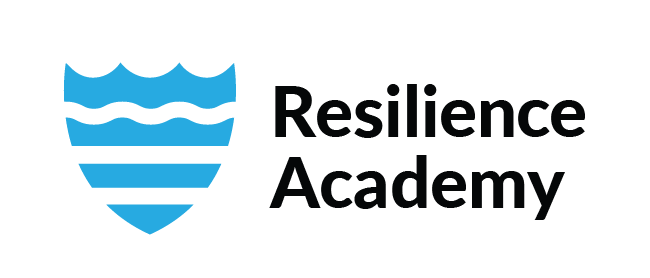LEARNING MATERIALS
Resilience Academy builds e-learning materials supporting student’s urban resilience skills in classrooms, off-campus and during the internships. Our learning materials consist of four main themes and they are open for anyone to learn, together or just by yourself.
THEME 1: OPEN DATA FOR RESILIENCE
Having open access to geospatial information and digital data sets in a pre-requisite for understanding risks and developing evidence-based solutions for resilient urban development. Theme 1 is about learning digital geospatial data quality, management, visualization, and data sharing skills to encourage and stimulate both academia as well as practitioners for improved resilience decisions in the society.
THEME 2: FLOOD RESILIENCE IN A CHANGING CLIMATE
Rapidly growing cities are increasingly vulnerable to climate change. Flooding is one of the most destructive hazards causing both socio-economic and social threats and losses. Theme 2 creates improved skills to understand the underlying risks related to changing climate, as well as practical digital skills to measure, map and predict floods in infrastructure poor and rapidly growing cities of the Global South.
THEME 3: COMMUNITY MAPPING FOR IMPROVED RESILIENCE PLANNING
Community participation makes urban planning effective and empowers the communities to cope with different type of risks in their living environment. Theme 3 creates a knowledge base and digital skills to use different community-driven methods and practices with location-technology solutions for mapping local risks and planning sustainable cities of the future.
THEME 4: EARTH OBSERVATION FOR RESILIENCE
Novel earth-observation instruments and improved access to vast catalogues of remote sensing data have shifted the ways urban growth and quality of living environment is mapped and monitored. Theme 4 provides practical skills to UAV technology (drones) and digital satellite and drone image data processing. It also introduces different solutions to use earth observation data in combination with other digital data sets for sustainable urban development.
Use cases and resilience impacts in the society
Geospatial Content Management System - Geonode
This module comprises four sub-modules that will provide training on the concepts and practical skills on geospatial content management system installation, customization and maintenance.
4 Courses
Geospatial Data Quality & Management
In this module, we dive deep to the topics of data quality, metadata and data sharing, via interesting practicals and the supporting background theory. Stories, quizzes and reading materials help you to get closer to the subject and feel motivated through this online module.
3 Courses
Geospatial Data Visualisation
This course contains four submodules that form a basis for students to understand the principles of the climate system and climate change.
4 Courses
Flood mapping, modelling and predictions
This module focuses on flood mapping, modeling and predictions. The course consists of different practicals, lectures and other interactive content, which allows you to use different learning techniques while getting familiar with the subject.
4 Courses
Flood resilience in a changing climate
This course contains four submodules that form a basis for students to understand the principles of the climate system and climate change.
4 Courses
Community mapping for improved resilience planning
Here, we focus on the topics of participatory mapping and process. You learn participatory mapping skills via interesting concept lectures, case examples and practical sessions.
3 Courses
Remote Sensing and image processing with open source software
You will obtain an understanding of environmental remote sensing and they learn how to search, explore, access and classify multispectral satellite images. After the completion of the module, you understand the key concepts of environmental remote sensing and image processing.
3 Courses
Community Urban Risk Mapping
This course covers the main concepts covered by Ramani Huria, structured as a self-learning course. The material is primarily designed to be used by professionals who already have some knowledge and experience in open source mapping applications.
3 Courses
More to come
"The training has helped me as an Urban Planner in Dar es Salaam city to help decision making for Resilient City. It has also well adding values in my studies related urban planning."
Athumani Msangi
"In generally I like this training because for many ways it shapes us and make us to became comptent in many activities both theoretically and practically."
Gideon Marandu
Recent Learning News
